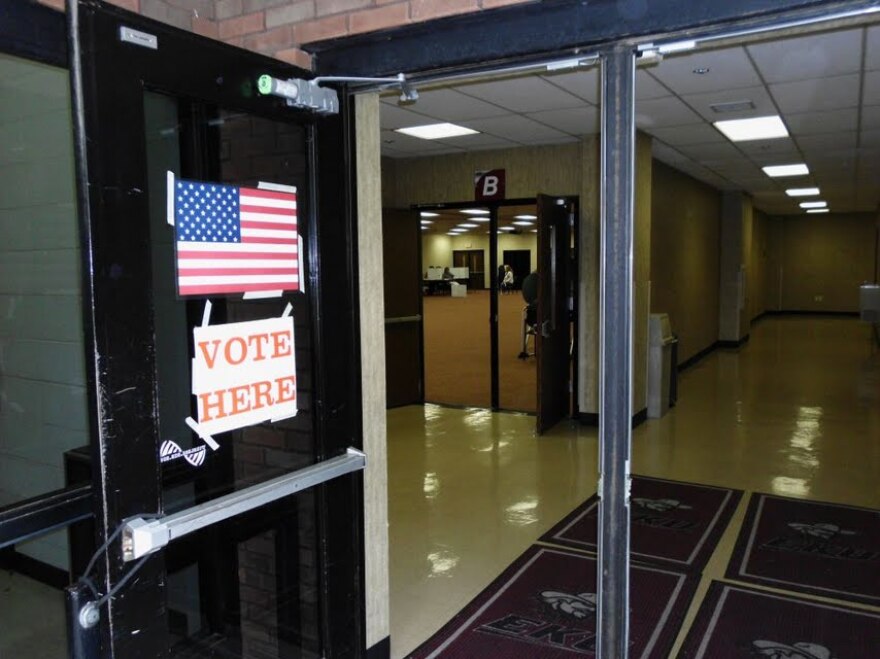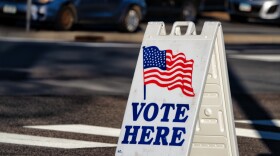With relatively few competitive races on yesterday’s ballot, the vast majority of Kentuckians opted out of the political process. A record number are registered to vote, but, Secretary of State Allison Lundergan Grimes set turnout Tuesday at an estimated 11%.
“We undertook a significant effort to make sure that those voters were educated with the information that they needed to come out and vote today and hoped that we would translate that registration in participation today,” said Lundergan-Grimes.
Talking to voters about turnout is like asking the choir master about attendance at Sunday services. Outside a polling place in Richmond Tuesday, these voters held a pretty low opinion of the no-shows.
“I think it’s very important to exercise our freedom to be able to vote and to have my opinion registered. As I got older, I realized more the importance of it,” said Ruby Major of Richmond.
“I think if you don’t vote you have no reason to complain about anything,” added her husband Ralph Major.
“Well if we want to be a free person, or a free society, everybody has to take responsibility, and I always told my father, if you do not vote, you cannot gripe to me,” said Mary Laird, also of Richmond.
Mary Laird added this election interested her because there was a city council race in Richmond.
That local race helps. Political scientist Ernest Yanarella says voters participate when they have something at stake. In his neighborhood, Yanarella says there wasn’t much on the ballot. And the University of Kentucky professor had to admit, he was tempted.
“It’s a customary practice in my family, for my wife and I to go and vote and then we go for breakfast. What did we do today? Well we went to breakfast and we didn’t vote. At least we haven’t voted yet,” said Yanarella on Tuesday afternoon.
Yanarella promised himself he would cast a ballot on the way home. But, for a political scientist to skip an election would be like that choir master sleeping in on the Sabbath. It’s not that non-voters don’t care. In a study done ten years ago, Yanarella found many people who opt out care deeply and contribute to their communities.
“Most of the people in those particular categories where alienated citizenry is prominent were very active in the PTAs, were very active in church organizations, very active in a number of civic groups, but they had just been completely turned off by the character of our politics,” said Yanarella.
There are many explanations for poor voter turnout. Some researchers claim non-voters are governed by genetics. Others say society no longer rewards a person who’s civic-minded. For some people, they refuse to vote, making it a political statement. Yanarella says a boycott can deny the winner legitimacy.
“That’s a very powerful message and it’s also a very bad thing, because it goes to the heart of what our system ought to be about, democracy, representative government, engaging in the spirit of compromise and trying to move this country and this state and this city forward,” said Yanarella.
Instead of hurting a candidate, a low voter turnout can help. For example, in central Kentucky’s 6th Congressional District, political scientist Joe Gershtenson says small numbers this fall should help the Democratic incumbent, meaning Congressman Ben Chandler.
“Often times there is very little incentive for candidates to really try to get high turnout, especially, if you’re talking about incumbents or the frontrunners, typically the low voter turnout is going to favor them,” said Gershtenson.
If the state really wants to improve turnout, the Eastern Kentucky University professor says we could time the primary so it happens before presidential nominees are selected. The Commonwealth could also open up the primary so voters can cross party lines.
“There are some, some rules of the game that do work against turnout here,” added Gershtenson.
This fall, much better turnout numbers seem inevitable. They always go up when a president in elected. Kentucky will also have competitive races of its own…the biggest probably in central Kentucky’s 6th congressional district. There will also be races for city hall and the county courthouse, in the judicial system and for the state legislature; everything you need for a big election, assuming you have voters.





